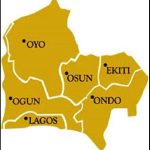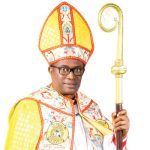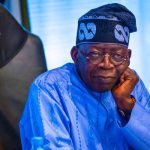
Nigeria, Africa’s most populous nation, is often celebrated for its rich cultural diversity, with over 250 ethnic groups and more than 500 languages spoken across its vast territory.
This vast mosaic of cultures is a unique feature that sets Nigeria apart in the global community, making it a vibrant tapestry of traditions, customs, and identities. quest for
However, this diversity also poses significant challenges when it comes to forging a unified national identity. While the notion of “unity in diversity” is embedded in Nigeria’s political ethos, the journey toward achieving true national cohesion remains fraught with tension, inequality, and ethnic divides. In the face of these challenges, there are still numerous opportunities for Nigeria to evolve into a nation that not only celebrates its diversity but also integrates it into a cohesive and robust national identity.
At the core of the challenge is the balancing act between ethnic and cultural identities and the need for a unified Nigerian identity. The country’s history, which includes the colonial imposition of borders and the subsequent formation of the Nigerian state, has contributed to tensions between ethnic groups that perceive their interests to be at odds with the state. The legacy of colonialism is often cited as a reason for the initial failure to create a truly integrated nation. The colonial powers divided ethnic groups and created artificial borders, leading to tensions that persist to this day.
One of the primary challenges to building a unified identity is the strong sense of ethnic nationalism that exists within various groups. Ethnic identity plays a central role in shaping the social and political dynamics of the country. Major ethnic groups such as the Hausa-Fulani, Yoruba, and Igbo have long dominated the political landscape, with their own distinct traditions, languages, and worldviews. The attachment to these identities often creates a feeling of exclusion among minority ethnic groups, who may feel sidelined in the political process. For example, the Biafran War of the late 1960s, a brutal conflict rooted in ethnic and regional differences, continues to shape the discourse around national identity, particularly among the Igbo people, who have often felt marginalised by successive governments.
Religious identity further complicates the national identity question in Nigeria. The country is divided between a predominantly Muslim north and a predominantly Christian south, with significant numbers of adherents to indigenous religions, particularly in the Middle Belt and southeastern regions. The religious divide often intersects with ethnic identities, creating complex tensions that are sometimes exacerbated by political leaders who appeal to their ethnic and religious bases for support. This polarisation is particularly evident during election periods, where religious and ethnic sentiments can sometimes undermine national unity.
In light of these challenges, the question arises: can Nigeria forge a national identity that transcends these ethnic and religious boundaries? The answer is complex, but there are promising pathways forward. One key opportunity lies in the embrace of cultural pluralism, where Nigeria’s ethnic groups not only coexist but also actively engage with one another’s traditions and practices.
Promoting intercultural dialogue can help reduce the friction caused by misunderstandings and mistrust between groups. The government, through policies and initiatives, can also create spaces for cultural exchange and collaboration, fostering a sense of shared ownership in the national project.
Education plays a critical role in shaping national identity, particularly in how the younger generation perceives their role in a diverse nation. Programmes that teach the values of unity, respect for diversity, and the history of Nigeria’s multi-ethnic society can go a long way in creating a sense of national pride. Programmes that highlight the contributions of different ethnic groups to Nigeria’s development, from literature to art to politics, can help instill a shared understanding of what it means to be Nigerian.
The role of the media cannot be overstated in shaping national identity. Media outlets, both traditional and new, have the power to either reinforce ethnic divisions or promote national cohesion. The portrayal of Nigeria’s diverse cultures in a positive light can help foster a greater sense of pride and unity.
Additionally, digital platforms and social media have become tools for young Nigerians to engage with their country’s culture in a way that bypasses traditional barriers. Through platforms like Twitter, Instagram, and YouTube, Nigerian youths are sharing their cultural practices, stories, and experiences in ways that transcend ethnic and religious divides.
Moreover, cultural expressions through music, literature, and film play a central role in building a unified national identity. Nollywood, Nigeria’s film industry, has played an instrumental role in portraying Nigerian culture and identity on the global stage. Nigerian music, particularly Afrobeats, has achieved international recognition and is a powerful unifying force for young people across the country. The cross-border appeal of Nigerian culture can serve as a bridge, connecting diverse Nigerians through shared pride in their cultural products.
However, for a truly unified identity to emerge, Nigeria must address the socio-economic inequalities that fuel division. Poverty, unemployment, and regional disparities exacerbate feelings of exclusion and marginalization. Efforts to create a more equitable society, where every Nigerian has access to the same opportunities and resources, are critical in fostering a sense of belonging. Economic policies that bridge the gap between the rich and poor and that ensure fair representation in political structures will go a long way in uniting the country.
In conclusion, Nigeria’s cultural mosaic presents both significant challenges and opportunities in the quest for a unified national identity. While ethnic, religious, and regional tensions remain, there is hope that through education, media, and cultural engagement, Nigeria can build a shared sense of belonging. By embracing its diversity and working towards social and economic inclusivity, Nigeria has the potential to create a national identity that reflects the values of unity, peace, and progress. The road ahead may be long and fraught with obstacles, but the journey toward a cohesive Nigerian identity is both necessary and achievable.
•Friday is a 300-level student, Department of Mass Communication, University of Maiduguri



